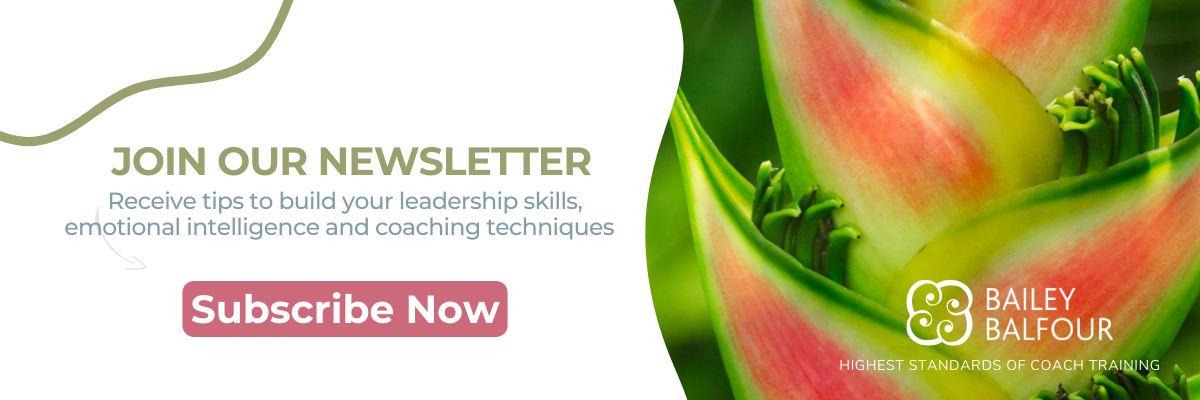
Overcoming Burnout: Leveraging the Power of Glimmers
I love my early morning walks, always feeling grateful for getting up with an early alarm to head out to walk along the river. This morning I saw a bird. And I really mean “saw” – not out of the corner of my eye but with my full awareness. I heard a rustle in the leaves and stopped what I was doing, looked up and saw the beautiful creature jumping from branch to branch. For just a moment it’s song was no longer background noise – it was in stereo.
The green leaves looked brighter and the world a little clearer. I felt a quick moment of joy and then returned to the podcast I was listening to. That was it: a short glimmer, only a few seconds, that reset my thinking and nervous system. Perhaps something has caught your attention recently too? A sunset? A flower? A really good coffee? But what are glimmers and how can becoming aware of them help us?
But first – let’s take a step back
Have you ever felt really stuck? Caught in the sludgey stagnation of unmotivated days at work?
It might have been a job that you once loved, but now feel trapped by. Or perhaps you still love parts of it but the shine has worn off and rusted and now it feels as though you drain your energy reserves just to keep going. Or maybe – you don’t even dislike it – but just don’t feel excited anymore either: a flat middling, hemmed in by a ceiling that seems to stifle growth rather than elevate your aspirations.
Over time you may have noticed that the small things that never really used to bother you at work now trigger you into frustration, or resentment. It’s a phase where the days blend indistinguishably into each other, and the very thought of work evokes a sense of dread rather than enthusiasm. However, nestled within this seemingly impenetrable state of sluggishness are glimmers—fleeting, often overlooked, opportunities for revitalization and change.
Tell me more about glimmers
Glimmers are described as the opposite of triggers. Glimmers are cues or moments that inspire positive feelings, such as hope, comfort, or joy, thereby contributing to a re-energised view – even in difficult situations. They activate our parasympathic nervous system, bringing us into a grounded, more open state. This is in contrast to triggers, as stimuli that lead to distressing emotional responses (often related to past traumas, stress, or anxiety), which kick start our fight/flight/freeze/fawn sympathetic nervous system. Some people may have particular glimmers that bring them a sense of delight – one person I know feels particularly grounded when they have a cup of tea – while others may find unexpected glimmers in anything from the way the light catches a tree or even something less “peaceful” like a busy streetscape.
What glimmers don’t do (and what they do)
Glimmers don’t change what’s happening right now nor the environment. They aren’t a quick fix or a tool of toxic positivity. What they can do is give us a reset or grounding to re-energise and be able to face what is going on – whatever that may be. When we cultivate an awareness of glimmers we keep re-connecting with a less fearful view and this can give us the resources to begin to problem solve. This can include fostering a more relational approaches to issues because when we operate outside our “fight/flight/freeze” defensive mode we can better work with others in a transparent and productive way.
How leaders and coaches can leverage glimmers
As leaders and coaches being aware of (and even deliberately noticing) glimmers can enhance some of our key skills. This list is by no means exhaustive and I’m sure that you will find many other ways, large and small, that glimmers sharpen your skills.
Attunement
To notice glimmers we use our senses – you’ll notice that it’s the feeling of the sun on your skin or the scent of your coffee that captures your attention. Or the sight/sound/taste of something. Whatever it may be – your senses are activated. This is an indicator that we are attuned to what is happening right now. When we spend so much of our time tuned instead into data, screens, future planning, past analysis, we can easily be drawn away from the present moment – and those people that are with us.
Being tuned out of the present moment as leaders and coaches can mean that we aren’t seeing what’s happening right now with clarity – we can see/hear what we expect to, or what we want to (resulting in blind spots and weak strategy). Being attuned instead helps us connect with people around us and also see ways that we can work together. For coaching this means being aware of our coachee on a deeper level and being able to ask meaningful follow up questions, for example, and know when to pause and when to listen. While triggers can make us feel isolated and defensive – glimmers do the opposite and help us tune in to ourselves as well as those around us.
Noticing and recognising
As leaders and coaches a sharp eye/ear can make the difference between a success or frustration. Being observant as a leader means being able to discern subtleties in team dynamics, employee engagement, and organisational culture that might otherwise go unnoticed.
By carefully observing, leaders can anticipate challenges before they escalate, identify areas for improvement, and leverage opportunities that align with their team’s strengths. This attentiveness allows us to provide timely feedback, make informed decisions, and guide our team with a nuanced understanding of individual and collective needs.
As a coach, being observant enables us to contextualise what our coachee is saying and their goals. We can observe their full environment, and them as people – with all the complexities of humanness.
To sharperend our observation skills we can practise noticing without judgement. Glimmers can help us in the practice of noticing and recognising without judgement. Glimmers are subtle and require an openness to noticing – and a practice in recognising. Building these muscles means that as leaders and coaches we will bring this observant attention to our work and conversations.
Inspired creativity and innovation
Glimmers often spark creativity by offering new perspectives or highlighting unexpected opportunities. These moments can light up a new way of thinking, helping leaders crack problems in unexpected ways. It’s this kind of creative thinking that can push an organisation ahead of the curve, making its offerings stand out and encouraging a workplace culture where innovation isn’t just welcomed, it’s celebrated. Plus, when leaders embrace and act on creative insights, it sets the stage for everyone on the team to think more openly and boldly, making the whole organisation more nimble and innovative.
For executive coaches, glimmers can not only inspire us to tailor our approaches in fresh and impactful ways, but also enable us to encourage the executives we mentor to think outside the conventional box. By harnessing and highlighting these glimmers, coaches can help leaders unlock their creative potential. Glimmers are a powerful tool for coaches working with leaders looking to solve problems, build relationships and work more creatively.
In summary: How glimmers can help with burnout
Even though it may seem small, glimmers play a crucial role in overcoming burnout by providing moments of relief, hope, and rejuvenation amidst the challenges and monotony of work life. Here’s how they can help:
- Boosting morale: Glimmers offer glimpses of positivity and progress, which can boost morale and motivation, helping individuals navigate through difficult times.
- Providing perspective: When experiencing burnout, it’s easy to lose sight of the bigger picture. Glimmers remind individuals of what’s meaningful and valuable in their work, providing perspective and purpose.
- Reducing stress: Glimmers activate the parasympathetic nervous system, triggering relaxation responses that counteract the stress and tension associated with burnout.
- Increasing resilience: Regular exposure to glimmers builds resilience, empowering individuals to bounce back from setbacks and face challenges with renewed energy and determination.
- Encouraging self-care: Recognising and embracing glimmers encourages individuals to prioritize self-care and seek out activities or experiences that bring them joy and fulfillment, essential components in overcoming burnout.
Overall, by acknowledging and nurturing glimmers, individuals can cultivate a more resilient mindset, better equipped to manage and prevent burnout in the long term. There are so many more benefits of becoming aware of glimmers and we have only highlighted a few here – we are sure that you will have more to add! Please share your thoughts with us on Linkedin or if you are an Alumni – in our private community. We love being in conversation with you!
Discover the science behind workplace unhappiness! Join our complimentary masterclass and gain insights from renowned master certified coach, Jean Balfour. Register now to learn more about neuroscience of misery at work.

Who are we?
Learn more about Bailey Balfour, who we are, our values, and how 22 years of executive coaching experience inspired our acclaimed IFC accredited training programmes. Meet our faculty and discover why you might like to learn with us.

Free Taster
One of the most effective ways to decide whether our programme is the best for you is to experience a short taster – to see what you could expect and get a feel for the different elements of our courses including mentor coaching, our self-directed resources and our learning system. You can enjoy this taster at your own pace at any time so register now.

Book a call
Having a call with Jean Balfour, our programme director, can help answer questions about our pathways in a way that is relevant to you. How will you fit it in around your schedule? How will it speak to your existing role? How could it enhance your skillset for the future in your career? Why is accreditation important? Schedule a call with Jean and answer these questions and take the next step in enrolling.

Upcoming Events and Webinars
Join us in engaging (and free) webinars – from networking to coaching skills, and purposeful questions – there is bound to be an upcoming topic that speaks to you. Register now – and don’t worry – if you can’t make the live session we will send you a recording so that you can enjoy it in your own time.
Making Sense of Work Podcast
How’s Work at the Moment? We all work – and yet we often struggle with work. Even very ambitious people find parts of work difficult. This podcast is for you if you’d like to build a new and better relationships with your working life. Join Jean Balfour and guests as they explore everything to do with our working lives, starting with how do we find our purpose, how do make sense of our organisations and what major movements are we seeing in the workplace today?
About the Author
Jean Balfour is Managing Director of Bailey Balfour and Programme Director of our ICF Accredited Coach Training Programmes. Jean is passionate about helping people to have good conversations both at work and at home. She believes that coaching is a life skill and that you never regret learning to coach.




